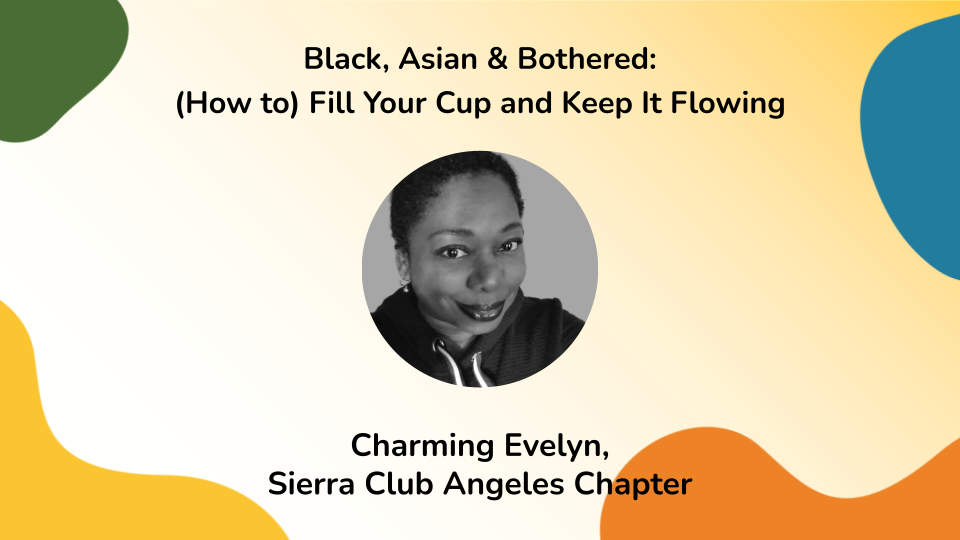The following article by Water Committee Chair Charming Evelyn was published in the AAPI Victory Alliance February 26, 2024 Newsletter.
As we close out Black History Month and look to spring, it’s imperative we continue the conversation about how climate change disproportionately impacts communities of color. Charming Evelyn from the Sierra Club shares the ever-growing importance of intersectional environmentalism and outlines some of the challenges these communities face.
It has been said that black and brown people have no care for the environment. That statement is categorically false. Indeed, even though the typical leaders of the environmental movement are not BIPOC (Black, Indigenous, People of Color), that doesn’t mean we don’t care. Our First Nation People are the OG’s of the environmental movement, yet most times they aren’t given a seat at the table. They go unheard and unseen.
It comes down to time, money and the issues that directly affect black and brown communities. Anyone working multiple jobs to make ends meet can’t focus on outside issues other than the hustle of keeping a roof over their heads, food on the table, car running and hopefully staying abreast with medical bills. These competing priorities does not mean they don’t care about the issues affecting their communities, there just isn’t the emotional and mental bandwidth to add that to their daily grind.
It also means they may not have the means to connect to nature, which is healing and regenerative. This country’s history of redlining and segregation has played a huge role in not having ready access to mother nature, be it a park, the beach or a National Monument. No one’s station in life should dictate whether you have clean air, water, access to good public transit, a good basic education, and access to the outdoors — yet it does.
Of course, it doesn’t help that most Government agencies keep meetings during daytime hours when most people are at work and these same agencies do not have information readily available in many languages, so by the time a neighborhood is alerted, it is usually too late to stop a harmful project. This is why polluting industries choose low-income and under-resourced neighborhoods for their projects. They look for communities where they will find the least amount of resistance.
In California, we have the California Environmental Quality Act (CEQA), created to help combat bad actors within the environmental space. If gutted there will be no recourse for BIPOC, low-income and underserved communities to fight back. This is the only tool available for environmental justice communities and organizations to repair and stop harm. Has it been misused at times? Most certainly, however, the long arc of the law bends toward justice.
The work we do as activists, whether volunteer or paid matters. It matters to the communities that are too busy surviving the stresses of daily life, it matters to the children being born and having to live in squalid conditions developing asthma, being poisoned by lead in their water and other diseases, it matters to those who are on fixed incomes, the elderly and the disabled faced with very limited choices, last but certainly not least, it matters to our Indigenous Communities.
It doesn’t matter that they don’t know who we are in the fight, it matters that someone is out there fighting for them when they can’t.
Charming Evelyn is of mixed race and works on water, housing, environmental & social justice issues. Additionally, she is Chair of the Water Committee for the Sierra Club Angeles Chapter and has worked on issues such as water conservation and depletion of groundwater.

